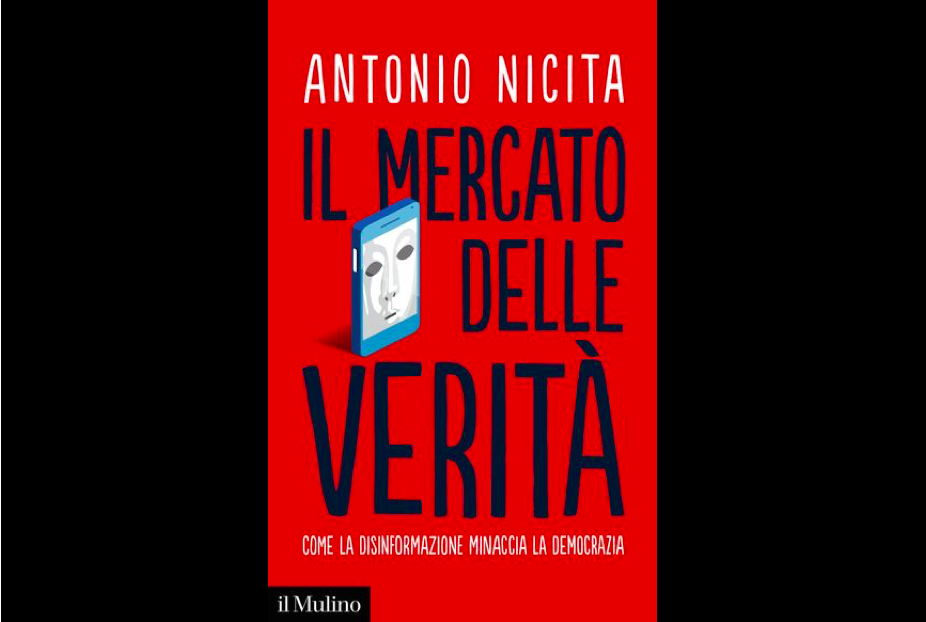Truth market or information chaos for commercial purposes?

"The market of truths", the new book by Antonio Nicita, read by Dario Denni
Philosophy has always sought the truth. Kant and Heidegger questioned how to orient oneself in truth and before them Plato, Heraclitus, Demosthenes and dozens of illustrious masters of thought thoroughly investigated the relationship between freedom of expression and the truth of the fact.
All this is discussed in Antonio Nicita's book "The Market of Truths" (Il Mulino editions, 239 pages, 16 euros) which, however, is not a philosophical text but a scientific investigation of an economic nature, which studies the associated phenomenon of truth the right not to be misinformed.
From the first chapter the reader is immersed in a sea of questions, which Nicita – like a new Dante at the gates of Hell – poses to himself and pretends to be overwhelmed. The loss does not last long.
We look at the America of the twenties, the roaring ones of 1920 and the modern ones of 2020. It emerges that Trump has totaled 70% of lies in the course of an exploratory fact-checking of his presidential career. Yet it seems that nobody cares about the truth anymore in the post-truth era where everything is questionable, and even the evidence turns into a first clue, useful for fueling new plots. And it is precisely here that the reader knows the true mechanisms of fake news, how they are substantiated and how they spread.
In this book Nicita uses all her experience as a communications regulator. And he asks himself: But what happened to pluralism? The pluralism of sources. Internal and external pluralism. Editorial responsibility.
Here, it happens that these great democratic achievements have given way to the algorithm. Those who organize the contents we see on social networks are pre-orienting us as Kant would say, or are ordering the chaos of information for commercial purposes, as Nicita would say.
Applying the theories of Smith, von Hayek, Arrow, McKenzie with doctrinal references linked in a compelling narrative, we discover that, after all, information is an economic good, it is exchanged in a market where information asymmetries and competition create surprising dynamics.
Kant said that "There is no real freedom in taking for truth without truth". As in religions. There is a lack of subjective knowledge, because man is cognitively limited. But also an objective lack, when even bombarded with information we maintain a substantial laziness in seeking the truth, and we end up accepting what we want or that suits us most.
It could be an evolutionary strategy like in Batesian mimicry, where certain animals confuse others by transmitting wrong information in order to survive. But Lacan, I am sure, would not agree on this.
In the end, the populists of our times do not explain everything but explain simply, they open the future to miraculous possibilities and we manage to create a new infodemic in the course of a dramatic pandemic. This is how we ourselves convince ourselves that we know, maybe we confront someone we think knows more than we do. And faced with the dilemma, when everything seems false or everything seems true, we polarize.
The book runs fast and can be a tool for great insights because each chapter is accompanied by a robust bibliography that completes it. At the end of this long journey of analysis, the reader will find himself in order not to be overwhelmed by a cascade of errors, confirmations and prejudices that lead us astray.
This is a machine translation from Italian language of a post published on Start Magazine at the URL https://www.startmag.it/innovazione/mercato-delle-verita-o-caos-informativo-a-fini-commerciali/ on Sat, 13 Nov 2021 06:09:08 +0000.
